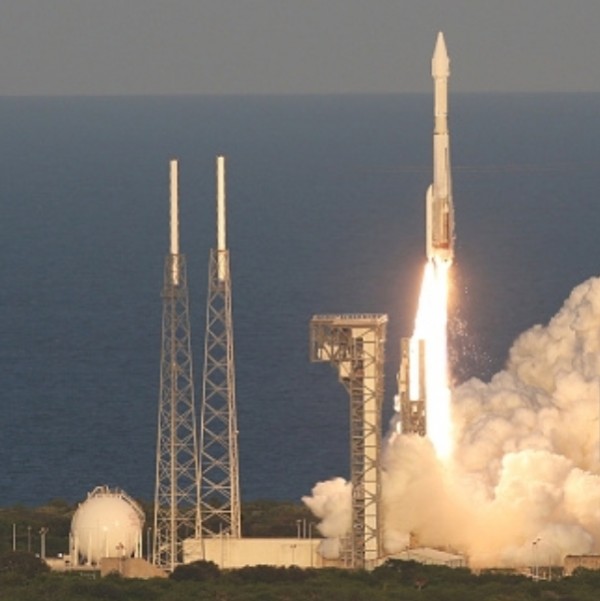By Godfrey Barasa, | September 10, 2016

OSIRIS-Rex spacecraft
NASA has started its mission to sample the asteroid Bennu. The OSIRIS-REx spacecraft is already on its way to the fascinating asteroid.
Dante Lauretta, the principal investigator of the mission, pointed out that he was nervous on the evening leading up to the launch on Thursday from the Cape Canaveral Air Force Station. However, all went off without a hitch, as the spacecraft sailed smoothly into the heavens atop a United Launch Alliance Atlas V rocket.
Like Us on Facebook
"We got everything just exactly perfect," Lauretta said during a post-launch news conference on Thursday from NASA's Kennedy Space Center. "All of the anomalies that we troubleshot-none of those came up. We hit all of our milestones within seconds of predicts [the predicted times]."
The mission team said that the Atlas V delivered OSIRIS-Rex right where it was supposed to be to start the two-year journey to asteroid Bennu. Less than two hours after the launch, the spacecraft had deployed its solar arrays, instigated its propulsion system, and established communication with Earth.
"I can't tell you how thrilled I was this evening," Lauretta said. "It was a wild, emotional ride, thinking of everybody that's with us, that's not with us."
Michael Drake, the original OSIRIS-Rex principal investigator, is no longer with the team. Lauretta described Drake as a mentor and a friend. The latter, who was the director of the LPL, passed on in September 2011; four months after NASA official endorsed the OSIRIS-Rex mission.
If everything turns out successful, OSIRIS-REx will hit at the 1640-foot-wide Bennu in August 2018. The team will study the asteroid from orbit for two years before grabbing at least 2 ounces of dirt and gravel from its surface.
The OSIRIS-REx spacecraft would deliver the sample to Earth in September 2023. Scientists worldwide would analyze the material in search of organic molecules, the carbon-containing building blocks of life. The work should enable researchers better understand the role that asteroids such as Bennu played in helping life get a grip on Earth - the main goal of the $800 million mission.
-
Use of Coronavirus Pandemic Drones Raises Privacy Concerns: Drones Spread Fear, Local Officials Say

-
Coronavirus Hampers The Delivery Of Lockheed Martin F-35 Stealth Fighters For 2020

-
Instagram Speeds Up Plans to Add Account Memorialization Feature Due to COVID-19 Deaths

-
NASA: Perseverance Plans to Bring 'Mars Rock' to Earth in 2031

-
600 Dead And 3,000 In The Hospital as Iranians Believed Drinking High-Concentrations of Alcohol Can Cure The Coronavirus

-
600 Dead And 3,000 In The Hospital as Iranians Believed Drinking High-Concentrations of Alcohol Can Cure The Coronavirus

-
COVID-19: Doctors, Nurses Use Virtual Reality to Learn New Skills in Treating Coronavirus Patients







